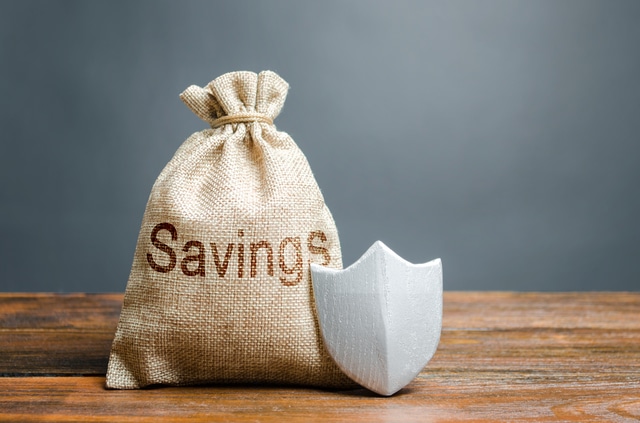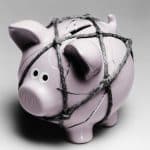The Importance of Emergency Funds in Financial Planning: Why You Need to Have One
Emergency funds are a crucial component of any comprehensive financial plan. These funds serve as a safety net, providing you with a financial cushion in case of unexpected expenses or emergencies. Having an emergency fund in place can help protect you from financial hardship and ensure that you are able to weather unexpected financial storms.
There are several key reasons why having an emergency fund is so important in financial planning:
- Protection against unexpected expenses: Life is full of surprises, and unexpected expenses can arise at any time. Whether it’s a medical emergency, a car repair, or a sudden job loss, having an emergency fund can help cover these unexpected costs without derailing your financial goals.
- Peace of mind: Knowing that you have a financial safety net in place can provide you with peace of mind and reduce stress. Having an emergency fund can help you feel more secure and confident in your financial future.
- Avoiding debt: Without an emergency fund, many people are forced to rely on credit cards or loans to cover unexpected expenses. This can lead to high-interest debt that can be difficult to pay off. By having an emergency fund, you can avoid going into debt and maintain your financial stability.
- Flexibility and financial independence: Having an emergency fund gives you the flexibility to handle unexpected expenses without having to dip into your savings or retirement accounts. This can help you maintain your financial independence and stay on track with your long-term financial goals.In conclusion, having an emergency fund is a critical part of any financial plan. It provides protection against unexpected expenses, peace of mind, and the flexibility to handle unforeseen financial challenges. By prioritizing building and maintaining an emergency fund, you can ensure that you are prepared for whatever life may throw your way.
How to Build and Maintain an Emergency Fund for Unexpected Expenses
Building and maintaining an emergency fund is a crucial step in financial planning to ensure you are prepared for unexpected expenses. Here are some steps to help you establish and grow your emergency fund:
- Set a goal: Determine how much you want to save in your emergency fund. A common recommendation is to have enough to cover 3-6 months of living expenses.
- Create a budget: Track your monthly expenses and income to identify areas where you can cut back and save more money. Allocate a portion of your income specifically for your emergency fund.
- Open a separate savings account: Keep your emergency fund separate from your regular savings or checking account to avoid dipping into it for non-urgent expenses.
- Automate your savings: Set up automatic transfers from your checking account to your emergency fund account on a regular basis. This will help you build your fund consistently over time.
- Cut unnecessary expenses: Review your spending habits and identify areas where you can cut back, such as dining out, subscription services, or impulse purchases. Redirect these savings to your emergency fund.
- Increase your income: Consider taking on a side hustle or finding ways to increase your income to boost your emergency fund faster.
- Avoid using your emergency fund for non-emergencies: Reserve your fund for true emergencies, such as medical expenses, car repairs, or job loss. It’s important to replenish the fund after using it to maintain its effectiveness.
- Regularly review and adjust your fund: Periodically review your emergency fund to ensure it aligns with your current financial situation and adjust the savings goal if needed.By following these steps and staying committed to building and maintaining your emergency fund, you can be better prepared to handle unexpected expenses and financial emergencies.
The Role of Emergency Funds in Budgeting: How to Ensure You’re Prepared for Anything
Emergency funds are a crucial component of any budgeting strategy, as they provide a financial safety net in the event of unexpected expenses or emergencies. These funds are specifically set aside to cover unforeseen costs such as medical bills, car repairs, or job loss, and can help prevent individuals from going into debt or dipping into their savings.
To ensure you are prepared for anything, it is important to establish an emergency fund that is easily accessible and sufficient to cover several months’ worth of living expenses. Financial experts recommend setting aside at least three to six months’ worth of expenses in an emergency fund, although the exact amount will depend on individual circumstances such as income, expenses, and risk tolerance.
When building an emergency fund, it is important to prioritize consistency and discipline. Set a specific savings goal and make regular contributions to your fund, either through automatic transfers from your checking account or by setting aside a portion of each paycheck. Treat your emergency fund as a non-negotiable expense, just like rent or utilities, and avoid the temptation to dip into it for non-essential purchases.
Additionally, it is important to keep your emergency fund separate from your regular checking or savings account to avoid the temptation of using it for day-to-day expenses. Consider opening a high-yield savings account or a money market account specifically for your emergency fund, where your money can earn interest while remaining easily accessible in case of emergency.
Ultimately, having a well-funded emergency fund can provide peace of mind and financial security in times of uncertainty. By prioritizing consistency, discipline, and separation from other accounts, you can ensure that you are prepared for anything that comes your way.
Emergency Funds: A Crucial Component of Financial Stability and Security
Emergency funds are a crucial component of financial stability and security. These funds are set aside specifically to cover unexpected expenses or financial emergencies that may arise, such as medical bills, car repairs, or job loss. Having an emergency fund in place can help individuals avoid going into debt or having to rely on high-interest credit cards in times of crisis.
The general rule of thumb is to have at least three to six months’ worth of living expenses saved in an emergency fund. This amount can vary depending on individual circumstances, such as income stability, family size, and monthly expenses. It is important to regularly review and update your emergency fund to ensure that it adequately covers your needs.
Building an emergency fund requires discipline and dedication. Start by setting a specific savings goal and consistently setting aside a portion of your income to contribute to the fund. Consider automating your savings by setting up automatic transfers from your checking account to your emergency fund account each month.
While it may be tempting to dip into your emergency fund for non-essential expenses, it is important to resist the urge and only use these funds for genuine emergencies. Remember, the purpose of an emergency fund is to provide financial security and peace of mind in times of crisis.
In conclusion, having an emergency fund is essential for financial stability and security. By diligently saving and prioritizing this fund, individuals can better prepare themselves for unexpected expenses and emergencies, ultimately reducing financial stress and improving overall well-being.
Top Tips for Growing Your Emergency Fund to Safeguard Your Financial Future
- Set a realistic savings goal: Determine how much you would need in your emergency fund to cover three to six months’ worth of living expenses. This will give you a clear target to work towards.
- Create a budget: Track your income and expenses to identify areas where you can cut back on spending and redirect those funds towards your emergency fund.
- Automate your savings: Set up automatic transfers from your checking account to your emergency fund each month. This will help you save consistently without having to think about it.
- Increase your income: Look for ways to boost your income, such as taking on a part-time job or freelancing gigs. Any additional income can be directed towards your emergency fund.
- Cut unnecessary expenses: Review your spending habits and identify areas where you can cut back. This could include dining out less, canceling subscriptions, or finding more affordable alternatives for everyday expenses.
- Prioritize your savings: Make saving for your emergency fund a priority over other financial goals. By focusing on building your emergency fund first, you can protect yourself from unexpected financial setbacks.
- Avoid dipping into your emergency fund: Resist the temptation to use your emergency fund for non-emergencies. Keep it separate from your regular savings accounts and only use it for true emergencies.
- Review and adjust your savings plan regularly: As your financial situation changes, revisit your savings goals and adjust them as needed. This will help ensure that your emergency fund remains sufficient to protect you in times of need.By following these tips and consistently contributing to your emergency fund, you can better safeguard your financial future and have peace of mind knowing that you are prepared for unexpected expenses.



